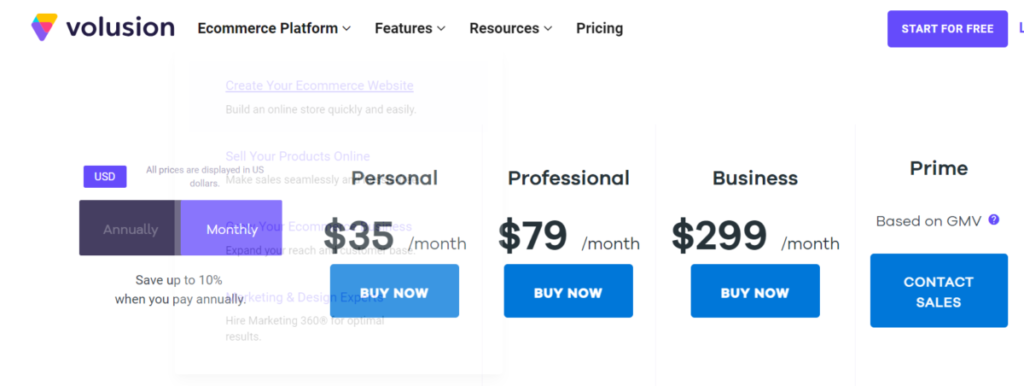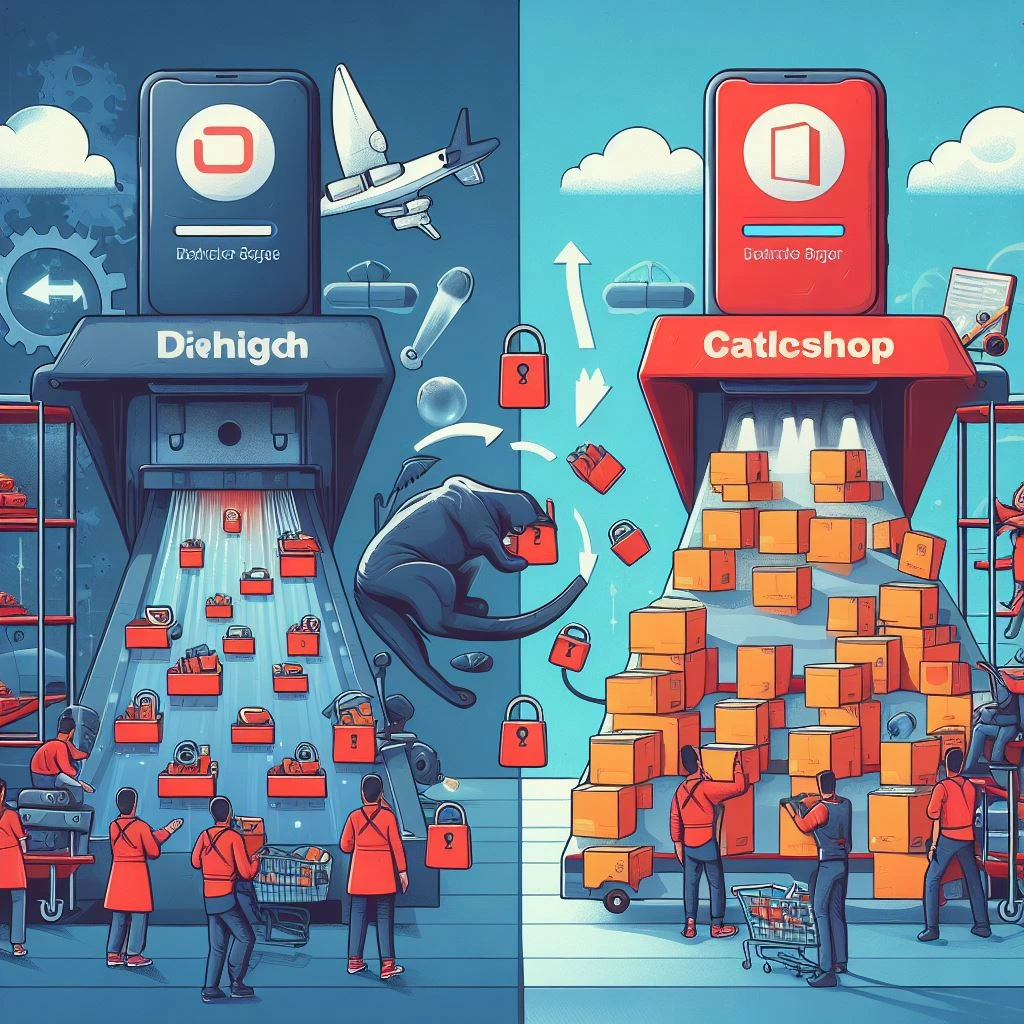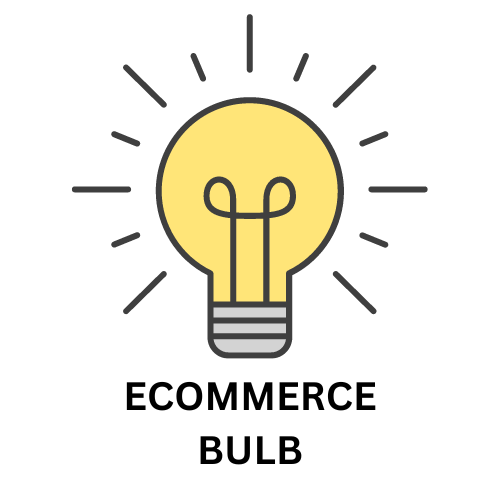In order to decide which ecommerce platform to use, WooCommerce vs Volusion. A detailed comparison between features must be thoroughly done. If you want to decide which eCommerce platform to choose, there are many things to consider.
These are some examples of these factors:
- Cost.
- SEO friendliness.
- Page load speed.
- Canonical website URL.
- Indexing Control.
- Customizable HTML capabilities.
- Sitemap Generator.
- Integration with Google Analytics.
- Product Tagging and Categorization.
- Batch Uploading.
- Mobile Optimization.
- Built-in Blogging and Marketing Features.
- Social Sharing Buttons.
- Content Management Capabilities.
- Discount and promotion code tools.
- Easy to use Checkout.
- Reporting tools and custom reports.
- Integration of email marketing tools.
- Multiple payment options.
- Flexibility to add new eCommerce features.
- Exclusive features.
- Cons and pros.
Here we’ll discuss these factors to help you decide which platform is better for you, Volusion or WooCommerce. And at the end of the discussion, we’ll recap and make a comparison for the scores of all these points to find out which eCommerce platform has the higher score, so that you’ll have a good view about both of them.
Pricing (WooCommerce Vs Volusion):

Sure, here is a comparison of the pricing tiers for WooCommerce and Volusion:
| Feature | WooCommerce | Volusion |
|---|---|---|
| Pricing model | Open-source, free | SaaS, paid plans |
| Monthly fees | $0 | $29 – $299 |
| Transaction fees | 2.9% + $0.30 per transaction | 3% + $0.30 per transaction |
| Additional costs | Themes, plugins, and hosting | None |
WooCommerce is an open-source ecommerce platform that is free to use. However, you will need to pay for hosting, themes, and plugins. The cost of hosting will vary depending on the provider and the amount of traffic your store receives. Themes can range in price from $50 to $200, and plugins can range in price from $0 to $100.
Volusion is a SaaS (Software as a Service) ecommerce platform that offers paid plans. The cost of Volusion’s plans ranges from $29 to $299 per month. Volusion also charges a 3% transaction fee, plus $0.30 per transaction.
In general, WooCommerce is a more affordable option than Volusion for small businesses. However, Volusion may be a better option for businesses that need a more hands-off solution or that have a high volume of transactions.
Here is a table that summarizes the key differences between WooCommerce and Volusion:
| Feature | WooCommerce | Volusion |
|---|---|---|
| Cost | Free | Paid plans |
| Ease of use | Easy to use, but requires some technical knowledge | Easy to use, no technical knowledge required |
| Features | Wide range of features available through plugins | Good range of features included in all plans |
| Scalability | Can be scaled to accommodate any size business | Can be scaled to accommodate most businesses |
| Support | Active community of users and developers | 24/7 customer support |
Read More: Why WooCommerce Over SquareSpace? The Truth to Help you Decide
SEO Capabilities (Volusion Vs WooCommerce):

Which eCommerce Platform Offers Better SEO Capabilities (Volusion Vs WooCommerce)?
Both Volusion and WooCommerce offer a variety of SEO features to help you rank higher in search engine results pages (SERPs). However, there are some key differences between the two platforms in terms of their SEO capabilities.
Volusion offers a number of built-in SEO features, such as:
- Automatic title and meta tag generation: Volusion automatically generates title and meta tags for your products and pages, which are essential for search engines to understand your content.
- Image optimization: Volusion automatically optimizes your images for search engines by compressing them and adding alt tags.
- Structured data markup: Volusion supports structured data markup, which can help search engines understand your content even better.
- Sitemap generation: Volusion automatically generates a sitemap of your website, which helps search engines index your pages.
- SEO audit tool: Volusion includes an SEO audit tool that can help you identify areas where you can improve your website’s SEO.
WooCommerce is a self-hosted platform, which means that you have more control over your website’s SEO. However, this also means that you will need to take a more hands-on approach to your SEO. There are a number of WordPress plugins that can help you with your SEO, such as:
- Yoast SEO: Yoast SEO is a popular WordPress plugin that can help you optimize your title tags, meta tags, and content for search engines.
- Rank Math: Rank Math is another popular WordPress plugin that can help you with your SEO. It includes a number of features, such as keyword research, local SEO, and schema markup.
- SEO Framework: SEO Framework is a lightweight WordPress plugin that can help you with your on-page SEO. It is a good option for users who are looking for a simple and easy-to-use plugin.
Overall, Volusion is a better choice for businesses that want a hands-off approach to their SEO. However, WooCommerce is a good option for businesses that have the time and resources to manage their SEO themselves.
Here is a table that summarizes the key differences between Volusion and WooCommerce in terms of their SEO capabilities:
| Feature | Volusion | WooCommerce |
|---|---|---|
| Built-in SEO features | Yes | No |
| Plugin availability | Limited | Wide range of plugins available |
| Control over SEO | Less control | More control |
| Overall SEO capabilities | Good | Good |
Read More: Why Adobe Commerce Over WooCommerce, The Comparison that will Help you Decide.
PageLoad Speed (WooCommerce Vs Volusion):

Which eCommerce Platform Offers Better PageLoad Speed (WooCommerce Vs Volusion)?
Page load speed is a crucial factor for eCommerce websites, as it can significantly impact user experience, conversion rates, and search engine rankings. Both WooCommerce and Volusion offer various features and optimizations to enhance page load speed, but they differ in their overall approach and effectiveness.
WooCommerce, being an open-source platform, relies on a combination of factors for page load speed, including the hosting environment, theme selection, plugin usage, and image optimization. While WooCommerce offers a plethora of customization options, it requires a more hands-on approach to optimize page load speed, which can be challenging for non-technical users.
Volusion, on the other hand, provides a more managed approach to page load speed optimization. Volusion’s hosting infrastructure is specifically designed for eCommerce, and its themes are optimized for performance. Additionally, Volusion offers built-in image optimization tools and automatically optimizes code for faster loading.
In general, Volusion tends to provide faster page load speeds out of the box compared to WooCommerce, especially for users with limited technical expertise. However, WooCommerce offers more flexibility for customization and can achieve comparable page load speeds with proper optimization.
Here’s a summary of the key differences between WooCommerce and Volusion in terms of page load speed:
| Feature | WooCommerce | Volusion |
|---|---|---|
| Page load speed out of the box | Slower | Faster |
| Optimization approach | Hands-on | Managed |
| Customization options | More flexible | Less flexible |
| Overall page load speed potential | High with proper optimization | High with minimal effort |
Read More: Why WiX Over WooCommerce? The Complete Comparison to Help you Decide.
Canonical Website URL (WooCommerce Vs Volusion):

Which eCommerce Platform Offers Better Canonical Website URL (WooCommerce Vs Volusion)?
Both WooCommerce and Volusion offer support for canonical URLs, which are essential for preventing duplicate content issues and ensuring that search engines recognize the preferred version of a URL.
WooCommerce handles canonical URLs by default, automatically assigning the correct canonical URL to each product and page. This ensures that search engines always crawl the correct version of a URL, even if there are multiple versions of the same page with different parameters.
Volusion also handles canonical URLs automatically, and it provides additional options for controlling canonicalization. For example, you can manually specify the canonical URL for a page, or you can disable canonicalization for a specific page.
In general, both WooCommerce and Volusion handle canonical URLs effectively, and you should not have any problems with duplicate content issues if you are using either platform.
Here is a table that summarizes the key differences between WooCommerce and Volusion in terms of canonical URLs:
| Feature | WooCommerce | Volusion |
|---|---|---|
| Canonical URL handling | Automatic | Automatic with additional options |
| Ease of use | Easy to use | Easy to use |
| Overall canonicalization capabilities | Effective | Effective |
Read More: Why BigCommerce Over WooCommerce? The Ultimate Comparison to Help you Decide.
Indexing Control (WooCommerce Vs Volusion):

Which eCommerce Platform Offers Better Indexing Control (WooCommerce Vs Volusion)?
Both WooCommerce and Volusion offer tools and features for controlling which pages and content are indexed by search engines. However, they differ in their approach and the level of control they provide.
WooCommerce provides basic indexing control through plugins and custom code snippets. Plugins like Yoast SEO and Rank Math offer options to prevent specific pages from being indexed, control the indexing of product variations, and manage indexing of custom post types. Additionally, custom code snippets can be added to further refine indexing control.
Volusion offers more granular indexing control through its built-in settings and tools. Users can manage indexing settings at the page level, including the ability to noindex individual pages, control indexing of product variations, and manage indexing of custom content types. Additionally, Volusion’s SEO audit tool can help identify areas where indexing may be causing issues.
In general, Volusion provides more comprehensive and user-friendly indexing control compared to WooCommerce. However, WooCommerce offers more flexibility for advanced users who are comfortable working with plugins and custom code.
Here’s a summary of the key differences between WooCommerce and Volusion in terms of indexing control:
| Feature | WooCommerce | Volusion |
|---|---|---|
| Indexing control approach | Plugins and custom code | Built-in settings and tools |
| Granularity of control | Basic | Granular |
| Ease of use | Moderate | Easy |
| Overall indexing control capabilities | Effective with some technical expertise | Effective with minimal effort |
Read More: Why Shopify Over Ecwid? The Truth that will Make you Decide.
Customizable HTML Capabilities (WooCommerce Vs Volusion):

Which eCommerce Platform Offers Better Customizable HTML Capabilities (WooCommerce Vs Volusion)?
Both WooCommerce and Volusion offer customizable HTML capabilities to varying degrees. However, they differ in their approach and the level of customization they allow.
WooCommerce, being an open-source platform, provides extensive control over the HTML code of your store. This means you can modify the HTML templates, add custom code snippets, and create completely new themes from scratch. This flexibility is particularly appealing to developers and users who want complete control over the look and feel of their store.
Volusion, on the other hand, offers a more limited approach to HTML customization. While you can still access and modify the HTML templates, the level of customization is restricted compared to WooCommerce. This is because Volusion’s themes are designed to be more user-friendly and require less technical expertise to modify.
In general, WooCommerce offers more extensive HTML customization capabilities, making it a better choice for developers and users who prioritize complete control over their store’s design and functionality. However, Volusion provides a more user-friendly approach to HTML customization, making it suitable for users with limited technical expertise.
Here’s a summary of the key differences between WooCommerce and Volusion in terms of customizable HTML capabilities:
| Feature | WooCommerce | Volusion |
|---|---|---|
| Level of customization | Extensive | Limited |
| Approach to customization | Open-source, requires technical expertise | Managed, less technical expertise required |
| Suitability for users | Developers, users who prioritize control | Users with limited technical expertise |
Read More: Why Shopify Over Optimizely? The Good & Bad in these two eCommerce Platforms.
Sitemap Generators (WooCommerce Vs Volusion):

Which eCommerce Platform Offers Better Sitemap Generators (WooCommerce Vs Volusion)?
Both WooCommerce and Volusion offer built-in sitemap generators to help you create a sitemap for your eCommerce website. A sitemap is an XML file that lists all the URLs on your website, which helps search engines like Google and Bing discover and index your pages.
WooCommerce offers a built-in sitemap generator that is simple to use and requires no technical expertise. The generator automatically creates a sitemap of your products, pages, and categories. You can also customize the sitemap settings, such as the frequency of updates and the priority of each URL.
Volusion also offers a built-in sitemap generator that is easy to use. The generator automatically creates a sitemap of your products, pages, and categories. You can also view the sitemap in XML format or download it as a file.
In addition to the built-in sitemap generators, there are also a number of WordPress plugins and Volusion apps that can help you create and manage your sitemap. These plugins and apps can provide additional features, such as the ability to submit your sitemap to search engines and track the performance of your sitemap.
Overall, both WooCommerce and Volusion offer good sitemap generators that can help you get your website indexed by search engines. However, if you are looking for a more customizable sitemap generator, you may want to consider using a plugin or app.
Here is a table that summarizes the key differences between WooCommerce and Volusion in terms of their sitemap generators:
| Feature | WooCommerce | Volusion |
|---|---|---|
| Ease of use | Easy to use | Easy to use |
| Customization options | Limited | Limited |
| Additional features | Requires plugin or app | Requires app |
Read More: Why Shopify Over Shift4shop? The Ultimate Comparison to Help you Decide.
Integration With Google Analytics (WooCommerce Vs Volusion):

Both WooCommerce and Volusion offer good integration with Google Analytics, allowing you to track your website traffic and measure the performance of your eCommerce store. However, there are some key differences between the two platforms in terms of their integration with Google Analytics.
WooCommerce integrates with Google Analytics through a plugin. The most popular plugin for this purpose is Google Analytics for WooCommerce, which is developed by Google itself. The plugin provides a variety of features, such as:
- Automatic tracking of page views, events, and transactions
- Enhanced eCommerce tracking for detailed product and purchase data
- Custom dimensions and metrics for tracking specific data points
- User reports to understand your customer behavior
Volusion has built-in Google Analytics integration, which means that you do not need to install a plugin. The integration is easy to set up, and it provides a variety of features, such as:
- Automatic tracking of page views, events, and transactions
- Enhanced eCommerce tracking for detailed product and purchase data
- Custom dimensions and metrics for tracking specific data points
- User reports to understand your customer behavior
In addition to the built-in integration, Volusion also offers a number of apps that can help you integrate Google Analytics with your store. These apps can provide additional features, such as:
- Real-time reporting
- Goal tracking
- A/B testing
Overall, both WooCommerce and Volusion offer good integration with Google Analytics. However, WooCommerce offers a more customizable integration through plugins, while Volusion offers a more user-friendly integration through its built-in functionality.
Here is a table that summarizes the key differences between WooCommerce and Volusion in terms of their integration with Google Analytics:
| Feature | WooCommerce | Volusion |
|---|---|---|
| Integration type | Plugin | Built-in |
| Ease of setup | Moderate | Easy |
| Customization options | Wide range of plugins available | Limited |
| Additional features | Requires plugins | Some additional features through apps |
Read More: Why Shopify Over Sellfy? The Complete Comparison to Help you Decide.
Product Tagging and Categorization (WooCommerce Vs Volusion):

Both WooCommerce and Volusion offer comprehensive product tagging and categorization features to effectively organize and manage product information. However, they differ in their approach and the level of flexibility they provide.
WooCommerce utilizes a hierarchical system of product categories and tags, allowing you to create a structured taxonomy for your products. Categories are used to organize products into broad groups, while tags are used to assign specific descriptive keywords to individual products. This combination enables users to easily navigate product listings and find relevant items through category browsing or tag-based filtering.
Volusion provides a similar approach to product tagging and categorization, but with added flexibility. You can create custom product attributes, which are essentially additional fields to define specific product characteristics. These attributes can be used for filtering, search, and product variations. Volusion also offers a feature called “category tags,” which allows you to assign multiple categories to a single product, providing more granular organization.
In general, both WooCommerce and Volusion provide effective product tagging and categorization capabilities. WooCommerce’s simplicity makes it suitable for basic product structures, while Volusion’s flexibility caters to more complex product hierarchies and attribute-based categorization.
Here’s a summary of the key differences between WooCommerce and Volusion in terms of product tagging and categorization:
| Feature | WooCommerce | Volusion |
|---|---|---|
| Tagging and categorization approach | Hierarchical system of categories and tags | Hierarchical system of categories, tags, and custom attributes |
| Flexibility | Limited to categories and tags | Highly customizable with custom attributes and category tags |
| Suitability for product structures | Simple to moderately complex | Complex product hierarchies and attribute-based categorization |
Read More: Why Shopify Over Prestashop? The Complete Comparison to Help you Decide.
Batch Uploading (WooCommerce Vs Volusion):

Both WooCommerce and Volusion offer batch uploading capabilities to efficiently manage large volumes of product data. However, they differ in their approach and the level of automation they provide.
WooCommerce primarily relies on CSV (comma-separated values) files for batch uploading. You can create a CSV file with all your product information, including product names, descriptions, prices, categories, and images, and then import it into WooCommerce using a plugin or the built-in import tool.
Volusion provides a more streamlined batch uploading process through its built-in import/export tool. You can upload CSV files, Excel spreadsheets, or XML files containing your product data. Volusion’s tool automatically maps the data fields to your product attributes, minimizing the need for manual configuration.
In addition to the built-in import/export tools, Volusion offers a dedicated app called “Product Importer” that provides advanced features for batch uploading, such as:
- Mapping custom product attributes
- Error checking and validation
- Scheduling recurring imports
Overall, Volusion offers a more user-friendly and automated batch uploading experience compared to WooCommerce. However, WooCommerce provides more flexibility for advanced users who are comfortable working with CSV files and custom data mapping.
Here’s a summary of the key differences between WooCommerce and Volusion in terms of batch uploading:
| Feature | WooCommerce | Volusion |
|---|---|---|
| Batch uploading method | CSV files | CSV, Excel, or XML files |
| Automation level | Limited automation | High automation |
| Ease of use | Moderate | Easy |
| Advanced features | Requires plugins or custom code | Built-in advanced features |
Read More: Is Shopify PaaS( Platform as a Service) or SaaS (Software as a Service)?
Mobile Optimization (WooCommerce Vs Volusion)?

Both WooCommerce and Volusion offer mobile optimization features to ensure your eCommerce store provides a seamless shopping experience on mobile devices. However, they approach mobile optimization in different ways and provide varying levels of control.
WooCommerce offers basic mobile optimization through themes and plugins. WooCommerce themes are designed to be responsive, adapting their layout to different screen sizes and ensuring a consistent user experience across desktops, tablets, and smartphones. Additionally, plugins like WP Mobile Menu and AMP for WooCommerce can further enhance mobile optimization by providing a streamlined mobile menu and optimizing page load speeds for mobile devices.
Volusion provides a more comprehensive approach to mobile optimization with its built-in mobile storefront editor. This editor allows you to customize the look and feel of your store specifically for mobile devices, including adjusting layouts, fonts, and images. Volusion also automatically optimizes page load speeds for mobile devices and ensures that all essential checkout elements are easily accessible on smaller screens.
In general, Volusion offers a more integrated and user-friendly approach to mobile optimization compared to WooCommerce. Its built-in mobile storefront editor provides greater control over the mobile experience, while WooCommerce relies on themes and plugins for customization.
Here’s a summary of the key differences between WooCommerce and Volusion in terms of mobile optimization:
| Feature | WooCommerce | Volusion |
|---|---|---|
| Mobile optimization approach | Responsive themes and plugins | Built-in mobile storefront editor |
| Level of control | Limited to themes and plugin options | Granular control over mobile layout and elements |
| Ease of use | Moderate, requires some technical expertise | Easy to use, no technical expertise required |
| Overall mobile optimization capabilities | Effective with proper theme and plugin selection | Excellent with built-in mobile optimization tools |
Read More; Why Shopify Over Weebly? The Complete Comparison to Help you Decide.
Built-in Blogging & Marketing Features (WooCommerce Vs Volusion):

Both WooCommerce and Volusion offer built-in blogging and marketing features to help you promote your eCommerce store and engage with your audience. However, they differ in their scope and functionality.
WooCommerce provides basic blogging capabilities through the WordPress platform. You can create blog posts, add categories and tags, and manage comments. Additionally, WooCommerce offers a number of plugins that can extend the blogging functionality, such as Yoast SEO for improving blog post optimization and Jetpack for adding social sharing buttons.
Volusion offers a more robust blogging platform with integrated marketing features. You can create blog posts, add categories and tags, and schedule posts to publish automatically. Volusion also provides built-in tools for managing email marketing campaigns, creating landing pages, and tracking website traffic.
In general, Volusion offers a more comprehensive and integrated set of blogging and marketing features compared to WooCommerce. However, WooCommerce’s open-source nature allows for extensive customization through plugins and themes.
Here is a table summarizing the key differences between WooCommerce and Volusion in terms of their built-in blogging and marketing features:
| Feature | WooCommerce | Volusion |
|---|---|---|
| Blogging platform | WordPress | Built-in blogging platform |
| Blogging features | Basic blogging capabilities | Comprehensive blogging features |
| Marketing features | Limited marketing features through plugins | Integrated marketing tools |
| Customization options | Extensive customization through plugins and themes | Limited customization options |
Read More: Why Shopify Over Volusion? The Complete Comparison to Help you Decide.
Social Sharing Buttons Availability (WooCommerce Vs Volusion):

Both WooCommerce and Volusion offer built-in and third-party social sharing buttons to help you share your products and content on social media platforms. However, they differ in the extent of their social sharing options and the level of customization they provide.
WooCommerce offers basic social sharing buttons through plugins. Popular plugins like Social Pug and AddThis provide social sharing buttons for a variety of platforms, including Facebook, Twitter, Instagram, and Pinterest. These plugins allow you to customize the placement and appearance of the buttons to match your store’s design.
Volusion offers a more integrated approach to social sharing with its built-in social sharing buttons. You can easily add social sharing buttons to your product pages, blog posts, and other content. Volusion also provides options to customize the buttons’ appearance and share settings.
In addition to the built-in options, Volusion offers a number of apps that can extend the social sharing functionality, such as:
- Facebook Pixel integration for tracking social media conversions
- Social media scheduling tools for automating social posts
- Social media analytics for measuring the performance of your social campaigns
Overall, Volusion offers a more comprehensive and user-friendly approach to social sharing compared to WooCommerce. Its built-in social sharing buttons and integrated social media tools provide a seamless experience for sharing your content across various platforms.
Here’s a summary of the key differences between WooCommerce and Volusion in terms of social sharing button availability:
| Feature | WooCommerce | Volusion |
|---|---|---|
| Social sharing button availability | Through plugins | Built-in and third-party options |
| Level of customization | Moderate, requires plugin selection and configuration | High, with built-in customization options |
| Integration with social media platforms | Limited | Seamless integration with various social media platforms |
| Additional social media features | Requires plugins | Built-in social media tools for tracking, scheduling, and analytics |
Read More: Why Shopify Over SquareSpace? The Complete Review to Help you Decide.
Content Management Capabilities (WooCommerce Vs Volusion):

Both WooCommerce and Volusion offer content management capabilities to help you manage and organize your product information, blog posts, and other content. However, they differ in their approach and the level of flexibility they provide.
WooCommerce relies on WordPress as its content management system (CMS). WordPress is a powerful and flexible platform that offers a wide range of features for managing content, such as:
- Creating and editing pages and posts
- Organizing content into categories and tags
- Adding images, videos, and other media
- Scheduling content to publish automatically
WooCommerce also offers a number of plugins that can extend the content management capabilities, such as:
- Yoast SEO for optimizing content for search engines
- Easy Digital Downloads for selling digital products
- WP Rocket for optimizing page load speeds
Volusion offers a built-in content management system that is designed specifically for eCommerce. This CMS provides a number of features for managing product information, such as:
- Creating and editing product descriptions
- Managing product categories and attributes
- Uploading product images and videos
- Setting product prices and inventory levels
Volusion also offers a number of built-in tools for managing blog posts and other content, such as:
- A built-in blog editor
- Tools for creating landing pages
- A built-in email marketing platform
In general, Volusion’s built-in content management system is easier to use and more streamlined for eCommerce businesses. However, WooCommerce’s open-source nature allows for extensive customization through plugins and themes.
Here is a table that summarizes the key differences between WooCommerce and Volusion in terms of their content management capabilities:
| Feature | WooCommerce | Volusion |
|---|---|---|
| Content management system (CMS) | WordPress | Built-in CMS |
| Focus | Flexible CMS for various content types | eCommerce-focused CMS for product information and blog posts |
| Ease of use | Moderate, requires some technical expertise | Easy to use, no technical expertise required |
| Customization options | Extensive customization through plugins and themes | Limited customization options |
| Overall content management capabilities | Effective with proper plugin selection | Effective for eCommerce-specific content management |
Read More: Why Shopify Over Adobe Commerce (Magento)? The Complete Review to Help you Decide.
Discounts & Promotion Codes (Volusion Vs WooCommerce):

Which eCommerce Platform Offer better Discounts & Promotion Codes (Volusion Vs WooCommerce)?
Both WooCommerce and Volusion offer a variety of discount and promotion code options to help you promote your products and increase sales. However, they differ in the level of flexibility and control they provide.
WooCommerce offers a wide range of discount and promotion code options through plugins. Popular plugins like WooCommerce Coupons and Discount Rules provide a variety of features, such as:
- Creating percentage-based discounts
- Setting fixed-amount discounts
- Offering discounts for specific products or categories
- Creating coupon codes for customers to redeem
Volusion offers a more streamlined approach to discount and promotion codes with its built-in tools. You can easily create discount codes, set their parameters, and manage their availability. Volusion also provides options to track the performance of your discount codes and see how they are impacting sales.
In addition to the built-in tools, Volusion offers a number of apps that can extend the discount and promotion code functionality, such as:
- Automatic discount codes for abandoned carts
- Targeted discount codes based on customer behavior
- Integration with email marketing platforms for sending personalized discount codes
Overall, Volusion offers a more user-friendly and integrated approach to discount and promotion codes compared to WooCommerce. Its built-in tools and integrated apps provide a seamless experience for creating, managing, and tracking your discount campaigns.
Here’s a summary of the key differences between WooCommerce and Volusion in terms of discounts & promotion codes:
| Feature | WooCommerce | Volusion |
|---|---|---|
| Discount and promotion code options | Wide range of options through plugins | Built-in tools and integrated apps |
| Level of control | Granular control through plugin configuration | Good level of control with built-in tools |
| Ease of use | Moderate, requires some plugin selection and configuration | Easy to use, no technical expertise required |
| Additional discount and promotion code features | Requires plugins | Built-in features and integrated apps for advanced discount strategies |
Read More: Why Shopify Over WiX? The Complete Review to Help you Decide.
Easy to Use Checkout (WooCommerce Vs Volusion):

Both WooCommerce and Volusion offer user-friendly checkout processes to facilitate a smooth shopping experience for customers. However, they differ in their approach to checkout optimization and the level of control they provide.
WooCommerce utilizes the flexibility of WordPress plugins to enhance the checkout experience. Popular plugins like WooCommerce Checkout Manager and One Page Checkout provide a streamlined checkout process, minimizing the number of steps and distractions. Additionally, WooCommerce offers integration with popular payment gateways like PayPal and Stripe, ensuring seamless payment processing.
Volusion provides a built-in checkout system that is designed specifically for eCommerce. This checkout system is optimized for conversion rates and provides a number of features to make it easier for customers to complete their purchases, such as:
- Guest checkout for customers who don’t want to create an account
- One-page checkout for a streamlined checkout experience
- Saved payment methods for faster checkout
- Real-time shipping rates
In general, Volusion’s built-in checkout system is easier to use and more streamlined than WooCommerce, which relies on plugins for customization. However, WooCommerce offers more flexibility for advanced users who want to customize the checkout process to match their specific branding and requirements.
Here’s a summary of the key differences between WooCommerce and Volusion in terms of checkout ease of use:
| Feature | WooCommerce | Volusion |
|---|---|---|
| Checkout optimization approach | Plugins and custom code | Built-in optimized checkout system |
| Ease of use | Moderate, requires plugin selection and configuration | Easy to use, no technical expertise required |
| Level of control | Granular control through plugin configuration and custom code | Good level of control with built-in options |
| Additional checkout features | Requires plugins | Built-in features for guest checkout, one-page checkout, saved payment methods, and real-time shipping rates |
Read More: Why Shopify Over WooCommerce? The Ultimate Review to Help you Decide.
Reporting Tools and Custom Reports (Volusion Vs WooCommerce):

Both WooCommerce and Volusion offer comprehensive reporting tools to help you track your eCommerce performance and make data-driven decisions. However, they differ in their approach to reporting and the level of customization they provide.
WooCommerce relies on a combination of plugins and custom code for reporting. Popular plugins like WooCommerce Analytics and MonsterInsights provide a wide range of reports, including:
- Sales reports for tracking revenue and order trends
- Product reports for analyzing product performance
- Customer reports for understanding customer behavior
- Marketing reports for tracking the effectiveness of your marketing campaigns
WooCommerce also offers the ability to create custom reports using SQL queries or third-party reporting tools. This provides a high level of flexibility for advanced users who want to create detailed and tailored reports.
Volusion offers a built-in reporting suite that provides a variety of pre-built reports, including:
- Sales reports for tracking revenue and order trends
- Product reports for analyzing product performance
- Inventory reports for managing stock levels
- Customer reports for understanding customer behavior
Volusion’s reporting suite also allows you to create custom reports using drag-and-drop functionality and predefined filters. This makes it easy to create tailored reports without requiring technical expertise.
In general, WooCommerce offers more flexibility for advanced reporting and customization, while Volusion’s built-in reporting suite is more user-friendly for non-technical users.
Here’s a summary of the key differences between WooCommerce and Volusion in terms of reporting tools and custom reports:
| Feature | WooCommerce | Volusion |
|---|---|---|
| Reporting approach | Plugins, custom code, and third-party tools | Built-in reporting suite and custom report builder |
| Level of customization | High level of customization for advanced users | Good level of customization without technical expertise |
| Pre-built reports | Requires plugins or custom code | Variety of pre-built reports included |
| Custom reports | Requires SQL queries or third-party tools | Easy to create using drag-and-drop functionality and predefined filters |
Read More: Why Shopify Over BigCommerce? The Comprehensive Review to Help you Decide.
Integration of Email Marketing Tools (WooCommerce Vs Volusion):

Both WooCommerce and Volusion offer good integration with email marketing tools to help you automate your email marketing campaigns and engage with your customers. However, they differ in their approach and the level of automation they provide.
WooCommerce integrates with email marketing tools through plugins. Popular plugins like MailChimp for WooCommerce and Constant Contact for WooCommerce provide a variety of features, such as:
- Automatically adding subscribers to your email list
- Creating and sending targeted email campaigns
- Tracking the performance of your email campaigns
Volusion offers a built-in email marketing platform that is integrated with its eCommerce platform. This platform provides a number of features, such as:
- Creating and sending email campaigns
- Managing email lists and subscribers
- Tracking the performance of your email campaigns
- Integrating email marketing with other marketing tools, such as social media and customer segmentation
In general, Volusion’s built-in email marketing platform is more user-friendly and integrated with its eCommerce platform compared to WooCommerce, which relies on plugins for integration.
Here’s a summary of the key differences between WooCommerce and Volusion in terms of email marketing tool integration:
| Feature | WooCommerce | Volusion |
|---|---|---|
| Email marketing integration type | Plugins | Built-in platform |
| Ease of setup | Moderate, requires plugin installation and configuration | Easy to set up, no plugin installation required |
| Level of automation | Moderate, requires setting up automation rules through plugins | High level of automation with built-in automation features |
| Additional email marketing features | Requires plugins | Built-in features for managing email lists, tracking campaign performance, and integrating with other marketing tools |
Multiple Payment Options (WooCommerce Vs Volusion):

Both WooCommerce and Volusion offer a wide range of payment options to accommodate various customer preferences and payment methods. However, they differ in the extent of their payment gateway choices and the level of integration they provide.
WooCommerce offers a vast selection of payment gateways through its extensive plugin ecosystem. Popular plugins like WooCommerce Payments and Stripe for WooCommerce provide integration with a wide range of payment processors, including:
- Credit cards: Major credit cards like Visa, MasterCard, American Express, and Discover
- Debit cards: ATM cards and other debit card options
- Digital wallets: PayPal, Apple Pay, Google Pay, and other mobile payment solutions
- Bank transfers: Direct bank transfers and other online payment methods
WooCommerce’s plugin-based approach allows for flexibility and customization, enabling you to choose the payment gateways that best suit your business and target audience.
Volusion offers a built-in payment gateway with a variety of payment options, including:
- Credit cards: Major credit cards like Visa, MasterCard, American Express, and Discover
- Debit cards: ATM cards and other debit card options
- Digital wallets: PayPal, Apple Pay, and Google Pay
- Bank transfers: Direct bank transfers and other online payment methods
Volusion’s built-in payment gateway provides a user-friendly and seamless integration with its eCommerce platform. It simplifies the setup and management of your payment options.
In general, WooCommerce offers a broader range of payment gateway options through its plugin ecosystem, catering to a wider variety of international payment methods and niche payment processors. Volusion’s built-in payment gateway provides a more streamlined and integrated experience, suitable for businesses that prefer a simpler setup and a focus on popular payment options.
Here’s a summary of the key differences between WooCommerce and Volusion in terms of payment options:
| Feature | WooCommerce | Volusion |
|---|---|---|
| Payment gateway integration | Extensive plugin ecosystem for various payment gateways | Built-in payment gateway with a variety of options |
| Level of flexibility | High level of flexibility in choosing and customizing payment gateways | Good level of flexibility with built-in options |
| Range of payment options | Vast selection of payment gateways, including international and niche options | Comprehensive range of popular payment options |
| Ease of setup | Moderate, requires plugin installation and configuration | Easy to set up, no plugin installation required |
Flexibility to Add New eCommerce Features (WooCommerce Vs Volusion):

When it comes to flexibility in adding new eCommerce features, WooCommerce and Volusion offer different approaches.
WooCommerce, being an open-source platform, provides immense flexibility in adding new features through its extensive plugin ecosystem. With thousands of plugins available, you can expand the functionality of your WooCommerce store in almost any direction imaginable. Whether you want to add advanced product filtering, implement recurring payments, or integrate with specific marketing tools, there’s likely a plugin available to address your needs.
Volusion, on the other hand, offers a more limited range of built-in features compared to WooCommerce. However, it provides a more controlled environment for adding new features through its app marketplace. Volusion apps undergo a review process before being published, ensuring compatibility and quality control. This can be beneficial for businesses that prioritize stability and a streamlined user experience.
In general, WooCommerce offers greater flexibility for adding new features due to its open-source nature and vast plugin ecosystem. However, Volusion’s app marketplace provides a more controlled and curated selection of features, which may be preferred by businesses seeking a more streamlined and secure approach.
Here’s a summary of the key differences between WooCommerce and Volusion in terms of flexibility for adding new eCommerce features:
| Feature | WooCommerce | Volusion |
|---|---|---|
| Approach to adding new features | Extensive plugin ecosystem | Built-in features and app marketplace |
| Level of flexibility | High level of flexibility through plugin selection and customization | Moderate level of flexibility through app selection and limited customization |
| Range of available features | Vast range of features available through plugins | Limited range of built-in features, expanded through apps |
| Control over feature implementation | Requires careful plugin selection and configuration | Apps undergo review process, ensuring compatibility and quality control |
Exclusive Features (Volusion Vs WooCommerce):

What are the Exclusive Features for these two eCommerce Platforms (Volusion Vs WooCommerce)?
Both WooCommerce and Volusion offer unique features that set them apart from each other. Here’s a breakdown of their exclusive features:
WooCommerce Exclusive Features:
- Open-source platform: WooCommerce’s open-source nature allows for extensive customization and flexibility. You can modify the code, add plugins, and create custom themes to tailor your store to your specific needs.
- Vast plugin ecosystem: With thousands of plugins available, WooCommerce offers a vast range of features and functionalities. You can find plugins for almost any aspect of your eCommerce business, from product management and marketing to customer relationship management (CRM) and payment processing.
- Large community support: WooCommerce has a large and active community of developers and users who provide support, share knowledge, and contribute to the platform’s development. This makes it easier to find solutions to any issues you may encounter and keep your store up-to-date with the latest features.
Volusion Exclusive Features:
- Built-in features: Volusion offers a comprehensive suite of built-in features, including inventory management, product variations, SEO tools, and marketing automation. This eliminates the need for plugins and simplifies store setup and management.
- Controlled app marketplace: Volusion’s app marketplace provides a curated selection of apps that have been reviewed and approved by Volusion. This ensures compatibility and quality control, reducing the risk of conflicts or security issues.
- Dedicated support: Volusion provides dedicated support from a team of eCommerce experts. You can get help with setting up your store, troubleshooting issues, and optimizing your eCommerce strategy.
- Mobile optimization: Volusion’s built-in mobile storefront editor allows you to easily customize the look and feel of your store for mobile devices. This ensures a seamless shopping experience for customers on smartphones and tablets.
- Integrated email marketing platform: Volusion’s built-in email marketing platform enables you to create and send targeted email campaigns, manage email lists, and track campaign performance.
- Real-time shipping rates: Volusion integrates with major shipping carriers to provide real-time shipping rates at checkout. This allows customers to accurately estimate shipping costs before completing their purchase.
- Saved payment methods: Volusion allows customers to save their payment methods for faster checkout. This improves the checkout experience and encourages repeat purchases.
- Guest checkout: Volusion enables guest checkout, allowing customers to purchase without creating an account. This can increase sales by reducing friction during the checkout process.
- Abandoned cart recovery: Volusion offers built-in abandoned cart recovery tools to help you recapture lost sales. You can send automated emails to remind customers of items left in their carts.
- Product recommendations: Volusion’s product recommendation engine suggests relevant products to customers based on their browsing history and purchase behavior. This can increase cross-selling and boost sales.
Market Share (WooCommerce Vs Volusion):

What are the Respective Market Shares for these two eCommerce Platforms (WooCommerce Vs Volusion)?
According to recent estimates, WooCommerce and Volusion hold the following market shares in the eCommerce platform landscape:
WooCommerce:
WooCommerce is the most widely used eCommerce platform globally, with an estimated market share of 26.4%. Its open-source nature, extensive plugin ecosystem, and large community support have contributed to its widespread adoption.
Volusion:
Volusion holds a smaller but still significant market share in the eCommerce platform space, with an estimated share of 1.3%. Its focus on built-in features, controlled app marketplace, and dedicated support have made it a popular choice for businesses seeking a more streamlined and managed eCommerce solution.
Here’s a comparison of their market shares:
| Platform | Market Share |
|---|---|
| WooCommerce | 26.4% |
| Volusion | 1.3% |
It’s important to note that market share estimates can vary depending on the source and methodology used. However, the overall trend indicates that WooCommerce holds a dominant position in the eCommerce platform market, while Volusion occupies a smaller but still notable niche.
Cons Of WooCommerce Vs Volusion:

What are the downsides Of WooCommerce Vs Volusion as eCommerce Platforms?
Both WooCommerce and Volusion offer strengths and weaknesses as eCommerce platforms. Here’s a comparison of their cons:
WooCommerce Cons:
- Technical expertise required: WooCommerce’s open-source nature and vast plugin ecosystem can be overwhelming for non-technical users. Setting up, managing, and troubleshooting plugins may require some technical expertise.
- Plugin compatibility issues: With a vast range of plugins available, there’s a potential for compatibility issues between plugins. This can lead to conflicts, performance slowdowns, or security vulnerabilities.
- Security maintenance: As an open-source platform, WooCommerce requires regular security updates and maintenance to protect against vulnerabilities. This can be a burden for businesses with limited technical resources.
Volusion Cons:
- Limited customization: Compared to WooCommerce’s open-source nature, Volusion’s built-in features and app marketplace offer less flexibility for customization. You may be limited to the features provided by Volusion and its approved apps.
- Higher pricing: Volusion’s pricing plans are generally higher than WooCommerce’s, especially for larger stores or those with specific feature requirements.
- Less control over integrations: Volusion’s app marketplace can limit your control over integrations with third-party tools and services. You may not be able to integrate with specific tools that you prefer.
Hidden Charges / Cost & Fees (WooCommerce Vs. Volusion):

What are the Hidden Charges / Cost & Fees of these eCommerce Platforms (WooCommerce Vs. Volusion)?
Both WooCommerce and Volusion have additional costs beyond their base pricing that you should be aware of before choosing a platform. Here’s a breakdown of their hidden charges and fees:
WooCommerce Hidden Charges and Fees:
- Domain name and hosting: WooCommerce is a self-hosted platform, so you’ll need to purchase a domain name and hosting separately. Domain names typically cost around $10 per year, and hosting plans can range from $5 to $100 per month, depending on your requirements.
- Payment gateway fees: WooCommerce integrates with various payment gateways, each with its own transaction fees. These fees typically range from 2% to 3% of each transaction, plus a flat fee per transaction.
- Plugin costs: WooCommerce’s extensive plugin ecosystem includes both free and premium plugins. Premium plugins can range in price from $50 to $200 or more per year.
- Theme costs: WooCommerce offers a variety of free and premium themes. Premium themes can range in price from $50 to $200 or more.
- Custom development costs: If you need custom development for your WooCommerce store, you’ll need to hire a developer. Developer rates can vary from $50 to $200 per hour or more, depending on their experience and expertise.
Volusion Hidden Charges and Fees:
- Transaction fees: Volusion charges transaction fees for all credit card and other digital payment transactions. These fees typically range from 2% to 3% of each transaction, plus a flat fee per transaction.
- Additional app fees: Volusion’s app marketplace includes both free and paid apps. Paid apps can range in price from $5 to $200 or more per month.
- Custom development costs: If you need custom development for your Volusion store, you’ll need to hire a Volusion expert. Developer rates can vary from $50 to $200 per hour or more, depending on their experience and expertise.
- Sales growth fees: Volusion’s pricing plans include monthly fees based on your monthly sales volume. As your sales increase, your monthly fees will increase as well.
It’s important to factor in these additional costs when evaluating the overall price of each platform. WooCommerce’s costs can be more variable depending on the plugins and themes you choose, while Volusion’s costs may be more predictable due to its built-in features and app marketplace.
Here’s a comparison of their hidden charges and fees:
| Platform | Hidden Charges and Fees |
|---|---|
| WooCommerce | Domain name and hosting, payment gateway fees, plugin costs, theme costs, custom development costs |
| Volusion | Transaction fees, additional app fees, custom development costs, sales growth fees |
What are the forte of eCommerce Platforms (WooCommerce vs Volusion)?
Both WooCommerce and Volusion offer distinct strengths that make them suitable for different types of eCommerce businesses. Here’s a breakdown of their fortes:
WooCommerce Fortes:
- Flexibility and customization: WooCommerce’s open-source nature allows for extensive customization and scalability. You can modify the code, add plugins, and create custom themes to tailor your store to your specific needs and branding.
- Vast plugin ecosystem: With thousands of plugins available, WooCommerce offers a vast range of features and functionalities. You can find plugins for almost any aspect of your eCommerce business, from product management and marketing to customer relationship management (CRM) and payment processing.
- Large community support: WooCommerce has a large and active community of developers and users who provide support, share knowledge, and contribute to the platform’s development. This makes it easier to find solutions to any issues you may encounter and keep your store up-to-date with the latest features.
Volusion Fortes:
- Ease of use and setup: Volusion’s built-in features and app marketplace make it easy to set up and manage your eCommerce store. You don’t need to worry about installing and configuring plugins or dealing with technical issues.
- Controlled app marketplace: Volusion’s app marketplace provides a curated selection of apps that have been reviewed and approved by Volusion. This ensures compatibility and quality control, reducing the risk of conflicts or security vulnerabilities.
- Dedicated support: Volusion provides dedicated support from a team of eCommerce experts. You can get help with setting up your store, troubleshooting issues, and optimizing your eCommerce strategy.
- Integrated features: Volusion offers a comprehensive suite of built-in features, including inventory management, product variations, SEO tools, and marketing automation. This eliminates the need for plugins and simplifies store setup and management.
Choosing the Right Platform:
The best platform for your eCommerce business depends on your specific needs and preferences. If you prioritize flexibility, customization, and a vast range of features, WooCommerce is a better choice. However, if you prefer ease of use, controlled app selection, dedicated support, and a comprehensive suite of built-in features, Volusion is a good choice.
Here’s a summary table highlighting their fortes:
| Platform | Fortes |
|---|---|
| WooCommerce | Flexibility and customization, vast plugin ecosystem, large community support |
| Volusion | Ease of use and setup, controlled app marketplace, dedicated support, integrated features |
Conclusion (Comparison Table for WooCommerce Vs Volusion):
As we can see from the detailed comparison between these two platforms (WooCommerce Vs Volusion) that the overall score for Volusion is better than WooCommerce’s with a very slight margin, it won’t even show in the comparison table because it is in the second decimal place!
If you prioritize flexibility, customization, and a vast range of features, WooCommerce is a better choice. However, if you prefer ease of use, controlled app selection, dedicated support, and a comprehensive suite of built-in features, Volusion is a good choice.
Note that the comparison was done with eCommerce and online business in mind.
I hope this could give you the required insight to choose which eCommerce Platform to use for your future projects!
Here is the full comparison between WooCommerce & Volusion eCommerce platforms:
| eCommerce Platform | WooCommerce | Volusion |
|---|---|---|
| Price | 9.0 | 8.5 |
| SEO Friendliness | 8.0 | 8.5 |
| Page Load Speed | 7.0 | 7.7 |
| Canonical Website URL | 8.5 | 8.5 |
| Indexing Control | 8.0 | 8.1 |
| Customizable HTML capabilities | 9.5 | 9.3 |
| Sitemap Generator | 8.5 | 8.5 |
| Integration With Google Analytics | 8.5 | 8.4 |
| Product Tagging & Categorization | 8.0 | 8.2 |
| Batch Uploading | 8.0 | 8.3 |
| Mobile Optimization | 8.0 | 8.3 |
| Built-in Blogging & Marketing Features | 9.0 | 9.1 |
| Social Sharing Buttons | 9.0 | 9.3 |
| Content Management Capabilities | 8.0 | 8.2 |
| Discount & Promo Code Tools | 8.5 | 8.6 |
| Easy to Use Checkout | 7.5 | 7.8 |
| Reporting Tools & Custom Reports | 9.5 | 9.6 |
| Integration of Email Marketing Tools | 8.5 | 8.5 |
| Multiple Payment Options | 9.0 | 9.2 |
| Flexibility to Add New eCommerce Features | 9.0 | 8.3 |
| Exclusive Features | 7.5 | 8.8 |
| Market Share | 9.5 | 7.8 |
| CONS & PROS | 7.5 | 7.0 |
| Forte | 9.0 | 9.1 |
| Hidden Fees & Charges | 7.0 | 6.3 |
| Overall Assessment (Average) | 8.4 | 8.4 |



Leave a Reply